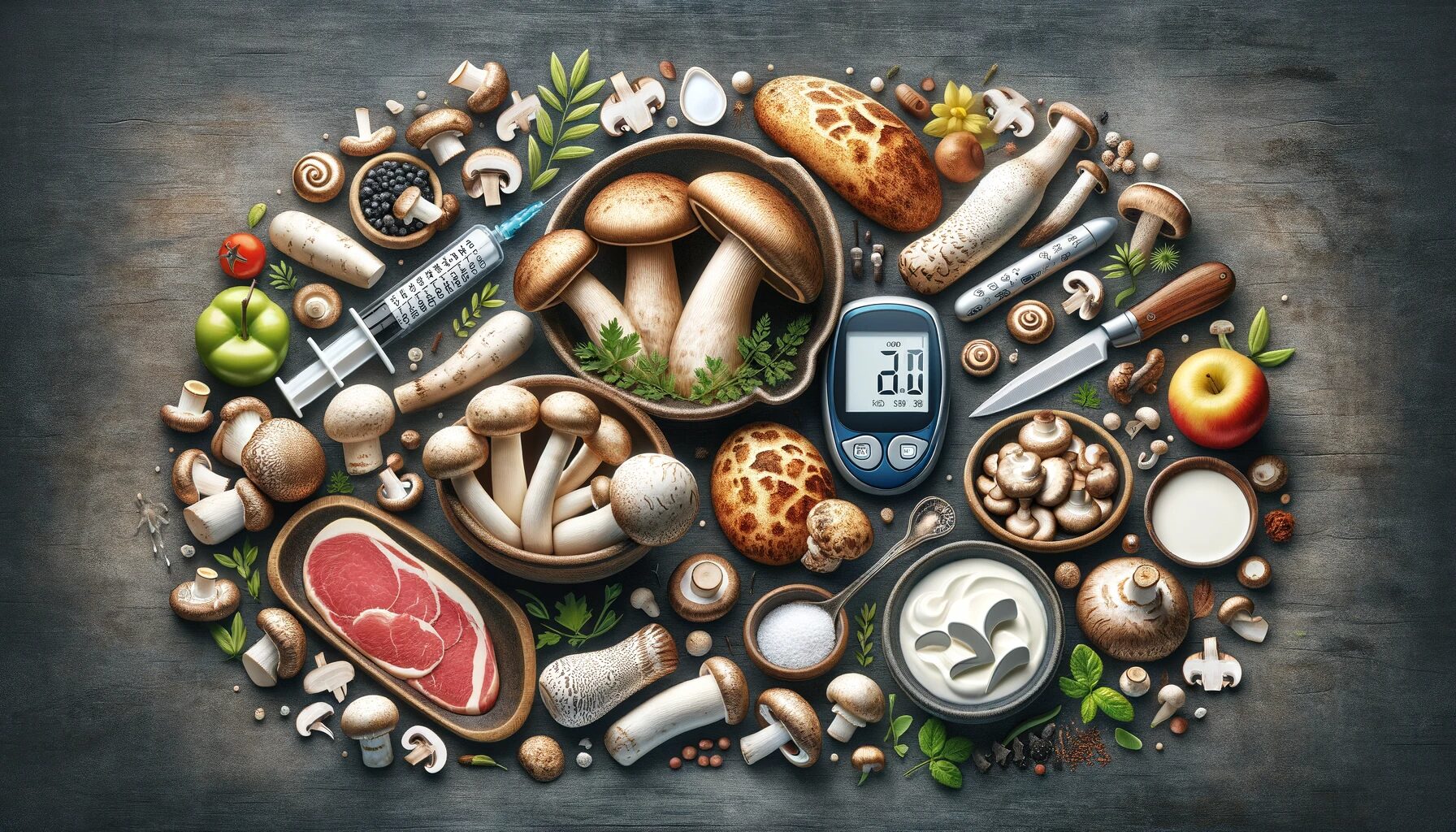When managing diabetes, dietary choices play a crucial role. Among various foods, mushrooms emerge as a topic of interest due to their unique nutritional profile. This article explores whether mushrooms are beneficial for individuals with diabetes.
Understanding Diabetes
Diabetes is a chronic condition characterized by high blood sugar levels. The two main types are Type 1, where the body doesn’t produce enough insulin, and Type 2, where the body doesn’t use insulin effectively. Diet plays a vital role in managing both types, with a focus on controlling blood sugar levels and maintaining overall health.
Nutritional Benefits of Mushrooms
Mushrooms are low in calories and carbohydrates, making them an excellent food choice for diabetes management. They contain minimal sugar and fat, and are a good source of fiber, vitamins (especially B vitamins), and minerals like selenium and potassium. Some key aspects include:
- Low Glycemic Index: Foods with a low glycemic index (GI) are beneficial for diabetes as they cause a slower, smaller increase in blood sugar levels. Mushrooms have a low GI.
- Rich in Antioxidants: They contain antioxidants like selenium, which can help reduce oxidative stress associated with diabetes.
- Fiber Content: The fiber in mushrooms helps in slowing down digestion and absorption of sugars, aiding in better blood sugar control.
- Weight Management: Being low in calories and high in fiber, mushrooms can aid in weight management, a crucial aspect of diabetes management.
Mushrooms and Blood Sugar Control
Several studies have indicated that mushrooms can have a positive effect on blood sugar levels. They can be a part of a balanced diet aimed at maintaining steady blood sugar levels due to their low carbohydrate content and other beneficial properties.
Different Types of Mushrooms
Various types of mushrooms, including white, portobello, shiitake, and oyster, each offer unique nutritional benefits. However, they all share the common characteristics of being low in carbs and high in nutrients, making them suitable for people with diabetes.
Incorporating Mushrooms into a Diabetic Diet
Mushrooms are versatile and can be easily included in a diabetic diet. They can be used in salads, soups, stir-fries, and as meat substitutes in various dishes. Their unique texture and flavor make them a popular choice in culinary preparations.
Precautions and Considerations
While mushrooms are beneficial, it’s important to consume them in moderation and as part of a balanced diet. For individuals with diabetes, it’s always recommended to monitor blood sugar levels and consult with healthcare providers when making significant dietary changes.
Conclusion
Mushrooms, with their low carbohydrate content, essential nutrients, and blood sugar-regulating properties, can be a beneficial addition to a diabetic diet. They offer a combination of health benefits that can aid in the overall management of diabetes, making them a wise choice for those looking to maintain healthy blood sugar levels and overall well-being.
FAQs
Q1. Can people with diabetes eat mushrooms?
- A. Yes, mushrooms are low in carbs and sugars, making them suitable for people with diabetes.
Q2. How do mushrooms affect blood sugar levels?
- A. Mushrooms have a low glycemic index and high fiber content, which helps in stabilizing blood sugar levels.
Q3. Are all types of mushrooms good for diabetes?
- A. Generally, all common types like white, portobello, and shiitake mushrooms are beneficial due to their low carb content.
Q4. Can eating mushrooms help manage diabetes?
- A. Yes, their low-calorie count and nutritional profile can aid in weight management and blood sugar control, important factors in diabetes management.
Q5. How can mushrooms be included in a diabetic diet?
- A. Mushrooms can be added to salads, soups, stir-fries, or used as a meat substitute in various recipes.
Q6. Do mushrooms have any specific benefits for people with diabetes?
- A. Besides being low in carbs, mushrooms are rich in antioxidants and nutrients that can support overall health in people with diabetes.
Q7. How many mushrooms can a person with diabetes safely eat?
- A. Moderation is key. The exact amount depends on individual dietary needs and should be discussed with a healthcare provider.
Q8. Are canned mushrooms suitable for a diabetic diet?
- A. Yes, but it’s important to check for added sugars or sodium in the canned products.
Q9. Do mushrooms have any side effects for diabetics?
- A. Mushrooms are generally safe, but as with any food, they should be eaten in moderation and as part of a balanced diet.
Q10. Should diabetics consult their doctor before adding mushrooms to their diet?
- A. It’s always a good practice to consult with a healthcare provider when making significant changes to a diabetic diet.

Alex is a seasoned writer and researcher, specializing in psychedelic studies and mental health. Known for insightful and authoritative content, he combines extensive knowledge with a passion for exploring wellness and alternative therapies. Alex’s work is a trusted resource for readers delving into the world of mental well-being.


Leave a Reply